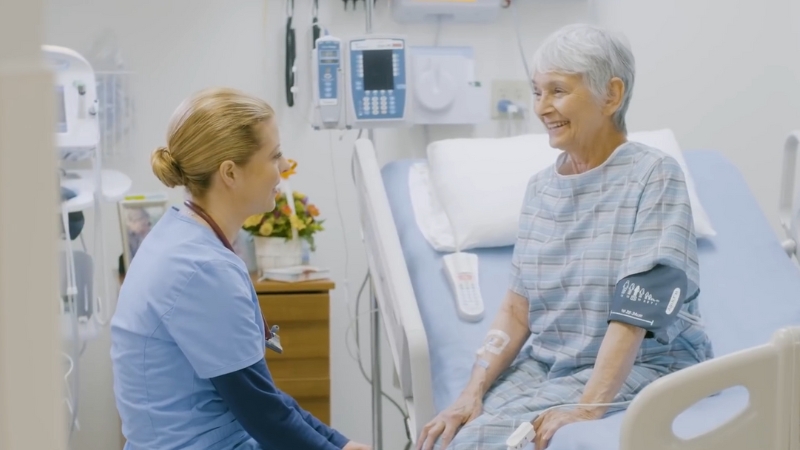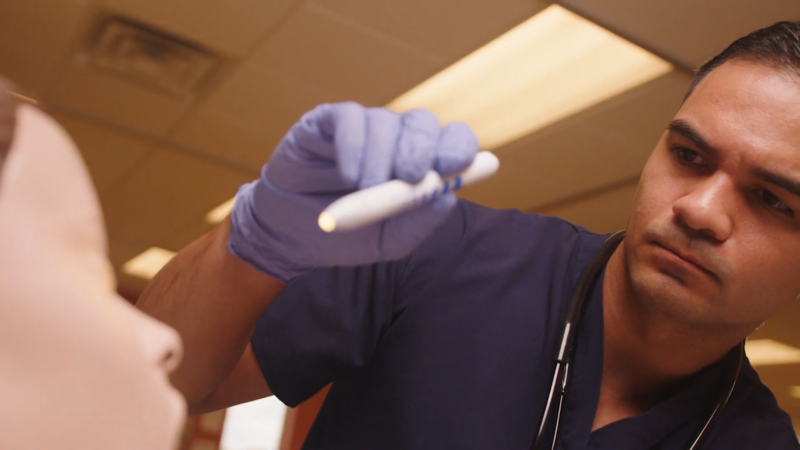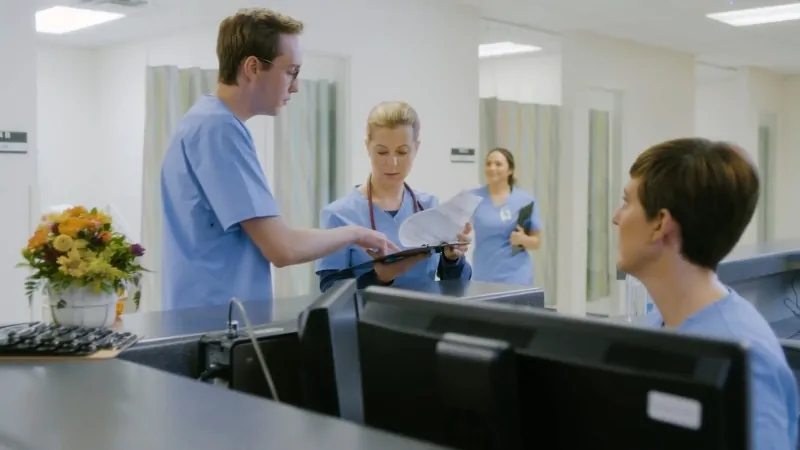Instead of spending four years earning a nursing degree, ABSN programs condense the required courses and clinical rotations into a much shorter timeframe. Some programs claim they can get you from enrollment to registered nurse (RN) status in just 12 months. But is 12 months realistic for everyone?
For some students, yes. But for others, it may take closer to 18 months. The timeframe largely depends on the program and how much time you can devote to your studies.
But let’s be real: not everyone can do that. Some programs have scheduled breaks or may require more clinical hours, which can stretch the timeline. Plus, if you need to complete prerequisites (we’ll get to those in a minute), that can add time as well.
Table of Contents
ToggleHow Does an ABSN Program Work?

Think of an ABSN program as an academic marathon, just run at sprint speed. You’re not starting from scratch. Since you’ve already got a degree, you skip general education courses and jump right into nursing-focused material. There’s no easing into the content either—it’s full-throttle from day one.
You’ll be taking courses like:
- Pharmacology
- Health assessments
- Adult and pediatric nursing
- Psychiatric nursing
- Community and public health
On top of that, you’ll also be completing clinical rotations, which give you real-world experience in various healthcare settings. For more info about programs that offer a comprehensive curriculum that prepares you for the rigors of nursing in a condensed timeframe visit onlinenursing.baylor.edu.
Prerequisites
Before you even start the clock on your ABSN journey, you need to check the prerequisite boxes. Each program is different, but the common courses you’ll need before you can enroll often include:
- Human anatomy and physiology
- Microbiology
- Chemistry
- Statistics
- Nutrition
- Developmental psychology
If you’ve already taken these classes, awesome. If not, you’ll need to complete them first, which could add a few months to your timeline. Some schools offer these prerequisites as part of the ABSN program, while others expect you to have them done before applying.
Domestic nursing is another crucial area where nurses provide care within the home setting, often for patients who require long-term care or have chronic conditions.
Unlike hospital or clinical nursing, domestic nursing allows healthcare professionals to deliver personalized care in a patient’s home, focusing on rehabilitation, daily living assistance, or palliative care.
his type of nursing is especially valuable for elderly patients or those recovering from surgeries who prefer to stay in a familiar environment. Domestic nurses not only support patients physically but also provide emotional and educational support to their families, ensuring comprehensive care.
5 Things You Need to Know About ABSN Programs
1. It’s a Serious Time Commitment

Don’t let the “12 months” part fool you into thinking this is a fast and easy path. The accelerated nature of the program means you’ll be covering a lot of material in a short time. Picture a firehose of information—you’ll need to absorb it quickly and be able to apply it in clinical settings.
2. Expect an Intense Workload
Most ABSN students will tell you that the workload is no joke. You’re packing years of education into months, so expect long days and nights of studying, along with rigorous clinical schedules. There will be times when it feels like it’s too much, but it’s all part of the process. That’s why many students choose not to work while in the program.
3. Prerequisites Matter
Don’t forget about those prerequisite courses. They aren’t just a formality—they give you the foundational knowledge you’ll need to succeed in the fast-paced nursing curriculum. So, if you’re missing any, make sure to budget the time to complete them before starting the program.
4. Clinical Rotations Are a Key Component
Clinical experience is where the rubber meets the road. You’ll be applying what you learn in the classroom to real patient care scenarios, from medical-surgical floors to psychiatric wards. These rotations are intense, condensed, and essential for preparing you to become a registered nurse.
5. Accreditation and Licensure Are Critical
Before choosing an ABSN program, make sure it’s accredited by a recognized nursing body like the Commission on Collegiate Nursing Education (CCNE) or the Accreditation Commission for Education in Nursing (ACEN). Accreditation ensures that your degree will be recognized, and it’s a requirement to sit for the NCLEX-RN, which is the exam you’ll need to pass to become a licensed nurse.
The Pros and Challenges of ABSN Programs
Pros
Challenges
Faster Path to a Nursing Career: You’ll be job-ready much sooner than if you went through a traditional four-year BSN program.
It’s Not for the Faint of Heart: The academic and clinical demands are intense. This isn’t a program you can coast through.
Career Change-Friendly: These programs are tailored for people with a non-nursing degree looking to pivot into healthcare.
Financial Strain: Most students can’t work during the program, making financing tricky, and ABSN programs can be expensive.
High Demand for Nurses: There’s a nursing shortage, and ABSN graduates are in the same position to get great jobs as traditional BSN grads.
Little Flexibility: The accelerated pace leaves little room for flexibility, with tight deadlines, long hours, and possibly weekend clinicals.
Real-World Clinical Experience
One of the most valuable parts of an ABSN program is the clinical rotations. You’ll be exposed to different areas of nursing, from pediatric units to psychiatric care, and you’ll get hands-on experience with patients. This is your chance to take everything you’ve learned in the classroom and apply it in real-world situations.
Clinical rotations are packed into the program just as tightly as the coursework, so you’ll be bouncing between different specialties quickly. It can feel overwhelming at first, but it’s also what prepares you to step into a nursing job right after graduation.
If you’re interested in merging nursing with the justice system, forensic nursing is a unique specialization that might intrigue you. Forensic nurses care for victims of violence, abuse, or trauma, while also collecting crucial evidence for legal proceedings.
ABSN programs can offer clinical rotations or training that touches on this field, preparing you for roles like a Sexual Assault Nurse Examiner (SANE) or working with law enforcement. The experience you gain during these rotations can set the foundation for a rewarding career that blends healthcare with the legal system.
Is an ABSN Program Right for You?

So, can you become a nurse in just 12 months? Yes, if you’re ready to dive into a highly demanding program and can commit the time and energy required.
It’s a fast track to a rewarding career, but it’s not for everyone. You’ll need to weigh the pros and challenges, consider the financial investment, and figure out if you can handle the intense workload.
For those who are ready, an ABSN program can be the perfect opportunity to change careers and start making a difference in healthcare sooner rather than later.
Ready to fast-track your nursing career? Just make sure you’re ready for the sprint.
Related Posts:
- Zero-Interest or Subsidized Home Renovation Loans…
- Do Blue Zones Really Hold the Secret to Living to…
- 17 Crazy Things to Do in Las Vegas for Couples 2025
- US Unemployment Rate in 2025 - Where Things Stand…
- 10 Best Startups in 2025 With Potential to Become…
- In the World’s Poorest Cities, Plastic Trash Has…








